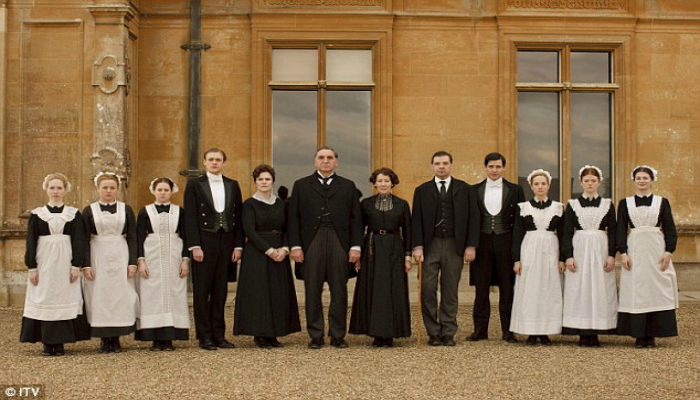A beautiful spring day when the sun made its appearance again after a short break, I took my son to the neighborhood’s playground. As I was swinging him, I saw a new face – in the playground we all know each other, at least by sight.
He was a white-haired gentleman around 50 years old. Judging by his clothes and, mainly, by the way he walked and looked, you could tell that his financial condition was not so good. He had the glassy stare of hopelessness and despair, a stare so common these days. He carried two plastic bags which he checked every now and then. Perhaps he was from a village or a slum. He might be an immigrant.
It was crystal clear that he was not feeling comfortable and his motions, his face, his whole bearing, reminded me one of the heroes of “The grapes of wrath”, a proud man who was forced to up sticks in order to survive.
He had a little boy, around ten years old. It seemed as if the child was carrying the sadness and despair of his father. He didn’t smile nor did he rush to the swings when they came. He sat on the bench next to his father and stared his empty hands. Till his father ruffled his hair and took him to the merry-go-round.
He spun him around a few times but the spectacle was so strange. No one talked, they didn’t even smile. Occasionally the child looked his father in the eyes who gritted his teeth and half closed his eyes as if the sun was blinding him.
Then he left him alone and went back to his bags. The child waited till the merry-go-round came to a halt. Then he got down and approached tentatively two of his peers who played soccer. He didn’t talk or greet them.
The children asked him if he wanted to play with them and he accepted by nodding his head slowly. But not before he cast a glance to his father to get his approval, who answered by making a weary gesture which meant unmistakably in every language: “play my child”.
The boy played with them till they were gone. Then he approached, also in the same tentative manner, some other children who were playing dodgeball. Once again he said nothing but hovered until they invited him to their game.
At some time the father took a look at his watch and rose to his feet. He picked the bags and he merely turned his head to his son. He ran to his side without complaining for leaving so soon and they left the playground, as quietly as when they came.
~~{}~~
Shortly after, I sat on a bench in front of the sand-filled pitch. My son, along with a classmate of his and a younger boy were searching in the sand for dinosaurs’ fossils. Such a chimerical quest but also so pleasant. Just like art itself.
I was reading a Chekhov’s novella with such a suitable title “The steppe”.
Every now and then I raised my eyes from my book and made comments to my child, the usual parental comments: “don’t throw sand”, “don’t roll in the sand, we bathed you just yesterday”, “share your toys with the other children”, “say thank you” etc. The grandparents and mothers of the other children were telling them the selfsame things.
Until three new faces came to the playground, as if they were drawn by Chekhov’s pen.
They were two brothers, two boys, eight and ten years old give or take something, accompanied by the housekeeper, servant, nanny, I don’t know what she was, perhaps all of them. She was Asian and automatically, stereotypically should I say, I thought “she’s a Filipina” – she could be from Malaysia or Vietnam.
The boys were well-dressed and blonde complected. Their faces bore the expression of an aristocrat who enters the stable and the stink of the dung makes him sick.
The elder one set off riding his bike fast, dodging in the nick of time the infants who took their first uncertain steps.
The younger one came to the sand-filled pitch. He looked envyingly the other children who played and began kicking the sand. Then he started snatching their toys from their hands without even asking them, and began digging and filling with dust those in his vicinity.
The “Filipina”, loaded with bags from a well-known pastry shop and eponymous clothes, entered the pitch and tried to stop him. But she talked so quietly that I couldn’t hear her, even though she was only two meters away from me. Neither did the kid. He went on destroying the so important excavations of the other children.
The boy with the bicycle stopped abruptly before the pitch and told his brother: “Gus, did you enter the pitch? You entered the pitch! I’ll tell mom!”
Gus kept on gleefully turning a deaf ear and spoiling others’ game.
At some point I decided to intervene.
“Gus”, I told him loudly but politely, “don’t throw sand at the other children”.
Gus raised his head and gave me a look as if he saw a strange bug. For a moment he stood motionless, giving it some thought. Then he dropped the sand spade and went a few steps away to carry on kicking the sand.
The “Filipina” was talking to him but to Gus she was non-existent.
An old man told him, a bit more sternly: “Don’t kick the sand boy”.
Gus left the pitch and set off running around the playground, with the “Filipina” on his heels.
“When servants raise you…” said a woman, but we all figured out what she was implying.
When servants raise you, you count the whole world as your servants.
Where could their parents be? More than likely to the nearby fish restaurant where they would enjoy their meal.
~~{}~~
When the two spoiled brats left the playground with the “Filipina” in their wake, I remembered an incident in Naxos six years ago.
A couple came to the most fascinating beach of the island, named Plaka. They were two complacent individuals with a tiny baby. A Filipina brought up the rear, carrying the household stuff.
The servant set up the tent, the deck chairs, the food and the coffees while the parents paddled their feet and enjoyed the turquoise waters.
After that, they lay their graceful bodies in the sun while their servant fed, changed the child’s clothes and occupied it. When they got heated enough, they entered the sea to cool themselves while the Asian sweated in her clothes taking care of the baby.
When the time to leave had come, the mother took the child and the father his precious self who pulls in so much money to pay for a servant and the Filipina followed them as fast as she could, loaded like a mule.
~~{}~~
On the way home from the playground, I thought of these two different worlds that intruded my routine unexpectedly.
On the one hand, the white-haired father with the so-precious plastic bags; and the subdued child, way too serious for his age, who waited to be invited to play.
On the other hand, the “Filipina” with the eponymous bags and her low voice and the children who disdained each and everyone else. And the absent parents.
My son was worried by my silence and asked me for the umpteenth time how the aliens who live in Europa, one of the Jupiter’s moons, might be like.
When I started explaining he smiled, perhaps relieved.
No “Filipina” could ever substitute the parents. And it is preferable to have a poor father caressing your hair than ten servants laying it on with a trowel for you.
~~~~~~~~~~~~~~~~~~~









